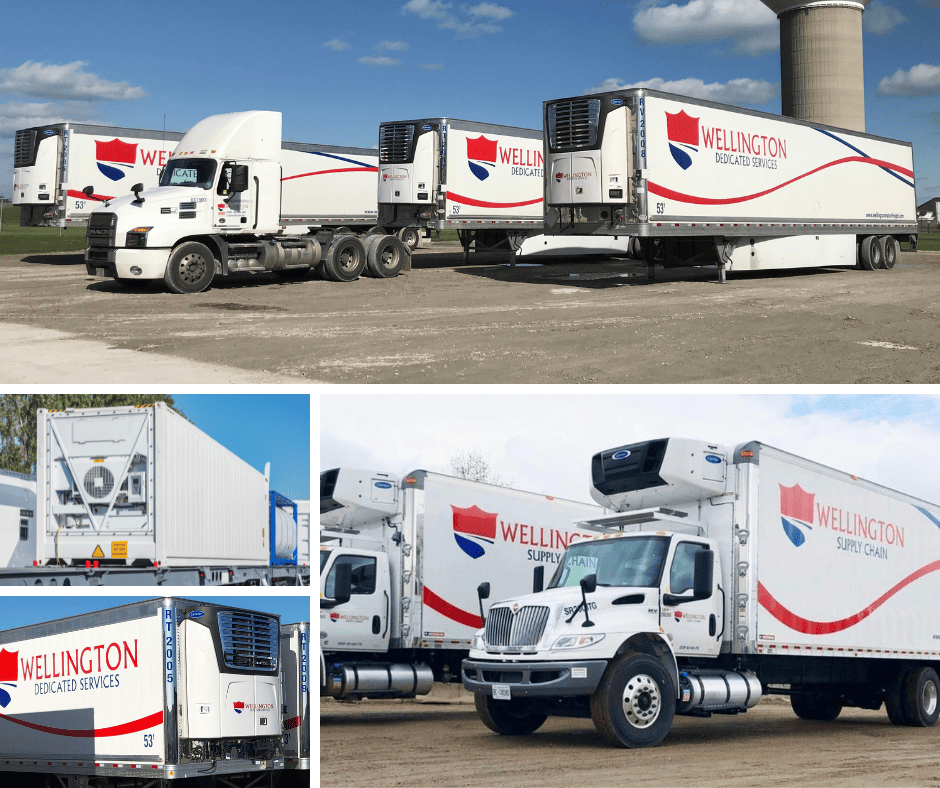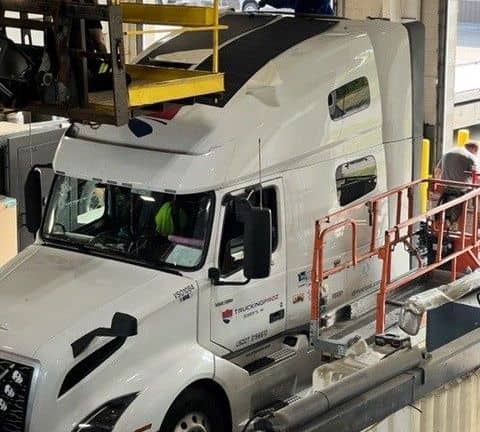
What is it?
Temperature-controlled freight is most often referred to as 'refrigerated' or 'reefer' freight, but it can be any shipment that requires transportation at a specific temperature including heat. Temperature control shipments are most often FTL (Full Truckload) but temperature control can also be needed for LTL, intermodal, air, ocean, and more. In some cases, goods intentionally move at different set temperatures throughout their journey – or even different set temperatures within the same piece of equipment. Trailers that have multiple temperature zones are not as common but can be extremely helpful for some shippers who are moving more than one type of product to the same location.
Equipment Types:
Specialized equipment is used to maintain temperature, and can include:
- 53' temperature vans – some 53' vans have multiple temperature zones
- 40' genset containers
- 40' thermal containers
- 20' - 24' straight trucks with temp control for LTL

When is it used?
The most common use that comes to mind for temperature-controlled freight is for fresh or frozen food. However, it can include many other products including pharmaceuticals, medical material, certain raw materials/compounds, cannabis or other plants, agricultural products, ingredients, and more! One of the largest users of refrigerated freight is the RTD (ready-to-drink) industry.
Things to consider: Product integrity
If a product is temperature specific, a loss of temperature control can create a shipment that is no longer marketable. This creates huge claims headaches for both shippers and carriers alike since a shipment of otherwise perfectly good product will need to be disposed of. And so, it's extremely important when shipping temperature control to consider in what ways your carrier, 3PL, or ABL provider is protecting your product integrity along its journey. Here are a few things that your logistics partner may provide to better protect your freight:
- Specifically trained drivers. This is crucial as drivers are sometimes responsible for tasks such as setting/changing temperature to a customer requirement, but they also identify risks and communicate proactively. A good driver will help protect product in more ways than just good driving!
- Advanced Technology. The best companies will have live, continuous temperature reporting and alerts with information as detailed as fuel levels and temperature fluctuations throughout the entire shipment. Say the rear door didn't close properly and the trailer isn't maintaining temperature, both the driver and the logistics team will be alerted and be able to intervene. With the right technology, the logistics team can adjust the temperature over the air and stop potential problems before they start.
- Reduced environmental impact and greater efficiency. Not all refrigerated equipment is made the same. Keep an eye out for equipment that is newer and more efficient! When it comes to 53' refrigerated trailers, not only can they lose efficiency rapidly, but also they may lack proper wall insulation or seals. Does your supply chain partner keep good equipment? How well do they maintain it? These are great questions to ask. Additionally, some temperature control transportation is now done with solar-powered systems for powering reporting technology. This means live alerts and reporting continue without the truck or trailer under diesel power. Some companies are even working to use solar to power the temperature control itself, but this is not yet widely implemented across the trucking industry.

Summary:
Temperature control isn't just refrigerated freight, but fresh and frozen products are what most people think about when they hear lingo like 'reefer' or 'temp van.' Shippers who move freight that requires temperature control can choose from many service options, but most will be looking to make an FTL move at the temperature they requested and will rely on data and reporting from their logistics provider. Overall, those new to trucking will want to know that temperature control typically requires a higher standard of care than your average dry van product, and it's critical for shippers to seek a supply chain partner capable of meeting their expectations for service.

Sponsored by:





